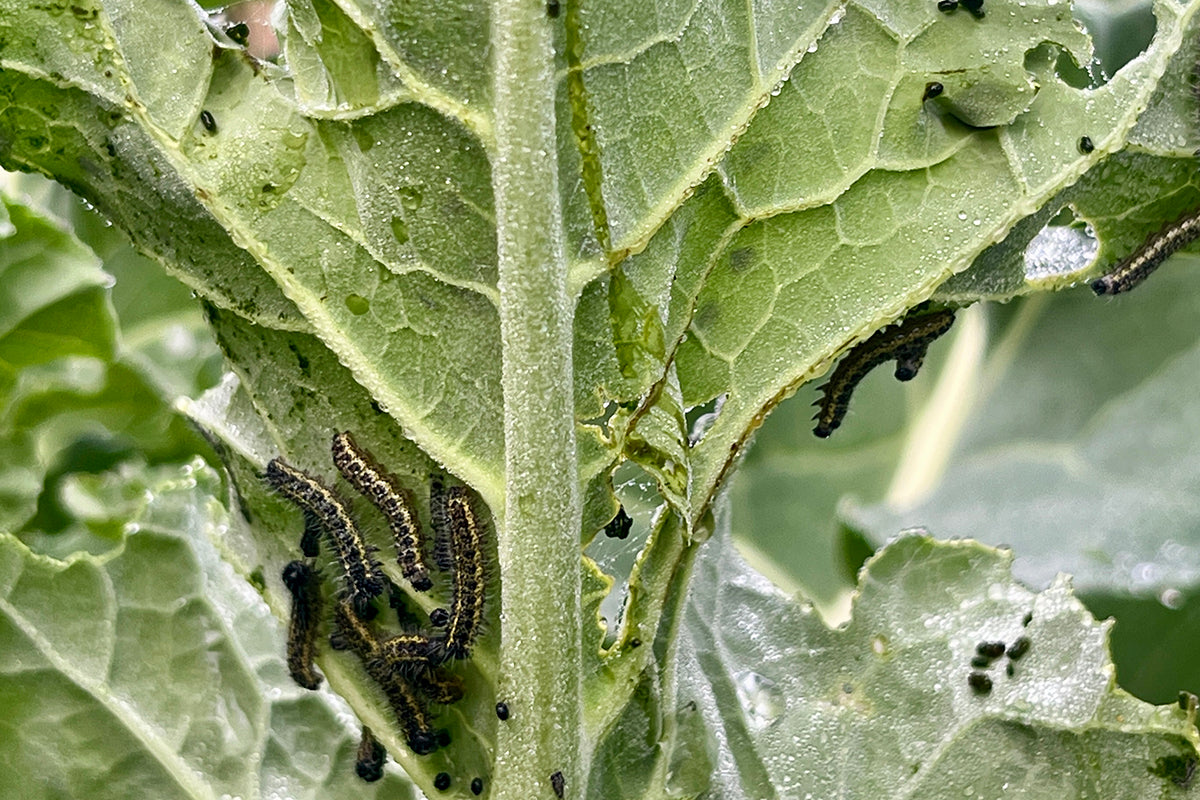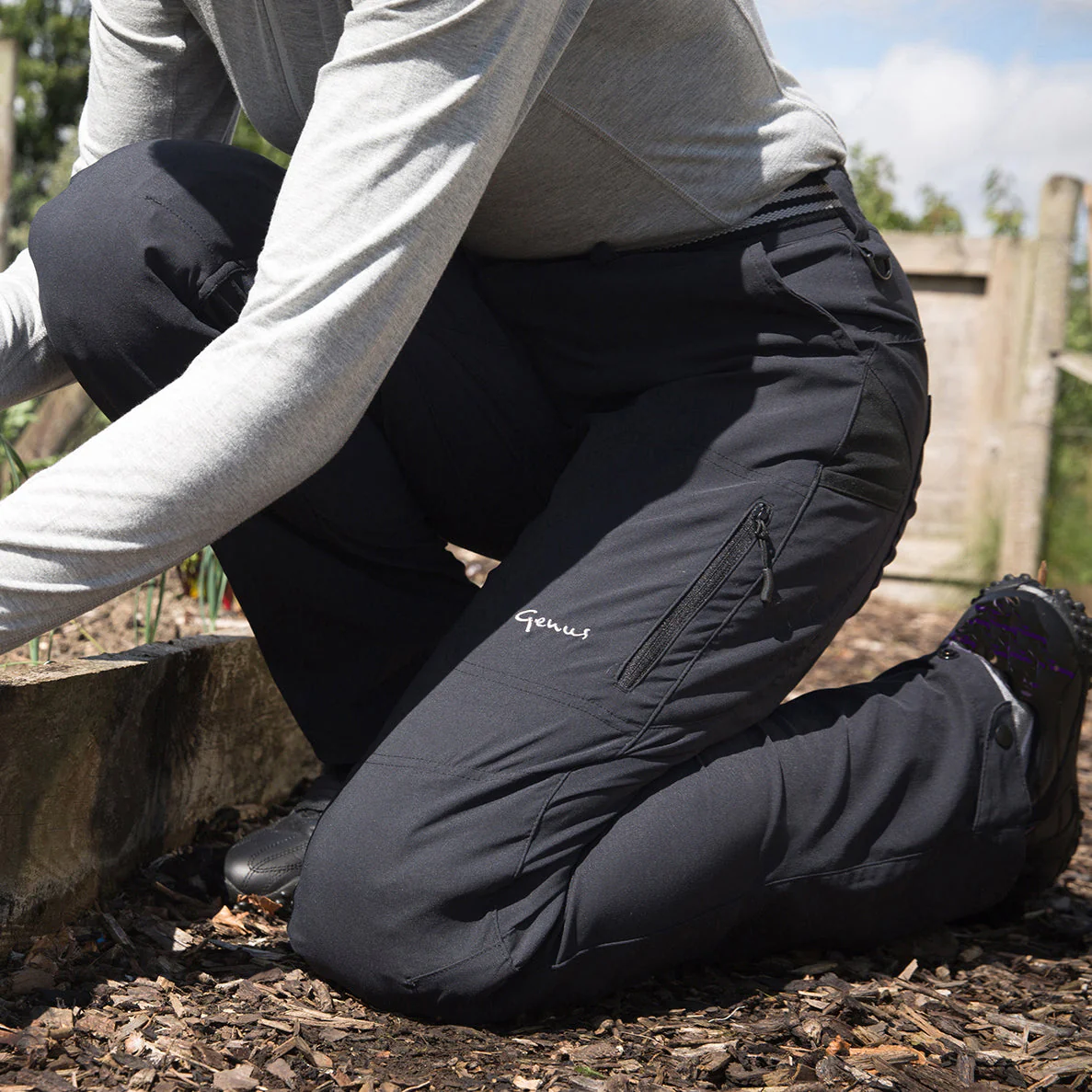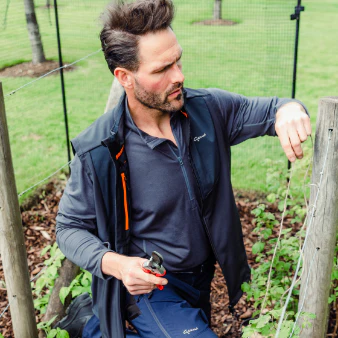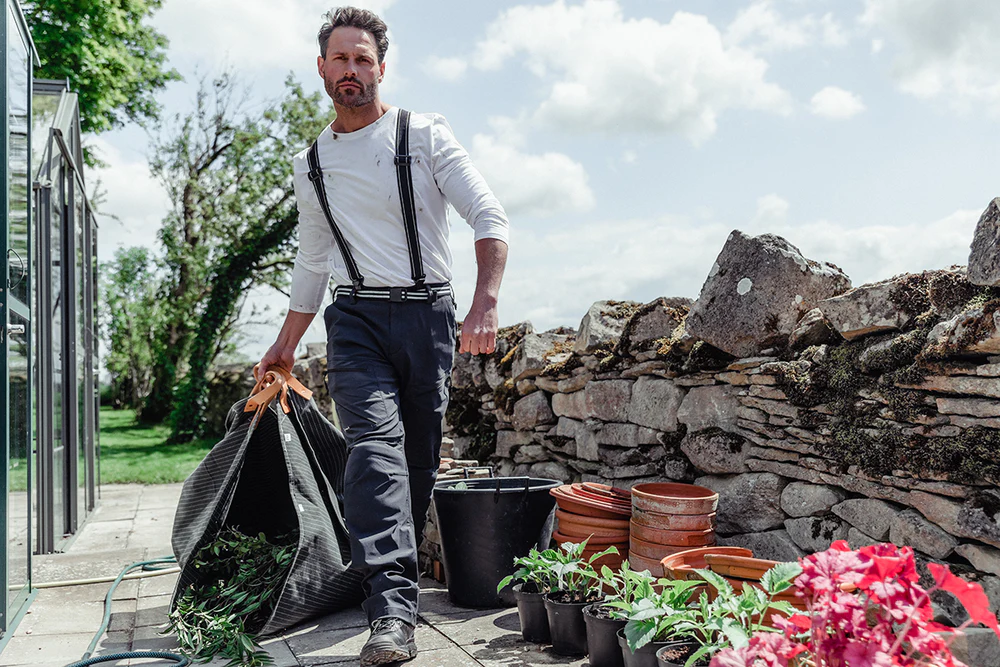Cabbage white caterpilars - a late appearance

The weather may have turned, our thick socks are on, and the waterproofs are constantly hanging up to dry, but it doesn’t mean that all signs of life have stopped in the garden. One thing I noticed this week was an unexpected late-season visit to the broccoli plants from caterpillars. Only a few weeks ago I was dealing with an infestation of mealy cabbage aphid and now these larvae of the large-white butterfly have arrived. I’m positive they weren’t there last week.
They were of course, but so small that they were overlooked. The giveaway was misshapen edges to the leaves while a closer inspection revealed the juvenile larvae on the undersides. Fifteen minutes of hand picking and all eight plants were cleared. I’ll keep checking over the next few weeks for any stowaways hidden in the folds and crevices of the leaves. With a thought for the local avian population the caterpillars I removed were relocated to the compost heap. Backing on to a hedgerow it’s frequently visited by birds who will appreciate a bit of protein in their diet before the onset of winter.
Larger infestations of caterpillars can be dealt with by using organic methods. Nematodes - tiny microscopic worms - can be sprayed, or a bug called Macrolophus pygmaeus can be introduced to control the population. Fine netting called Enviromesh can also be laid over to stop the butterflies gaining access to the plants in the first place.
Whatever the approach I think we’ve all started to see our gardens as part of the wider environment rather than plots of land reserved exclusively for the growing of plants at the expense of nature.











